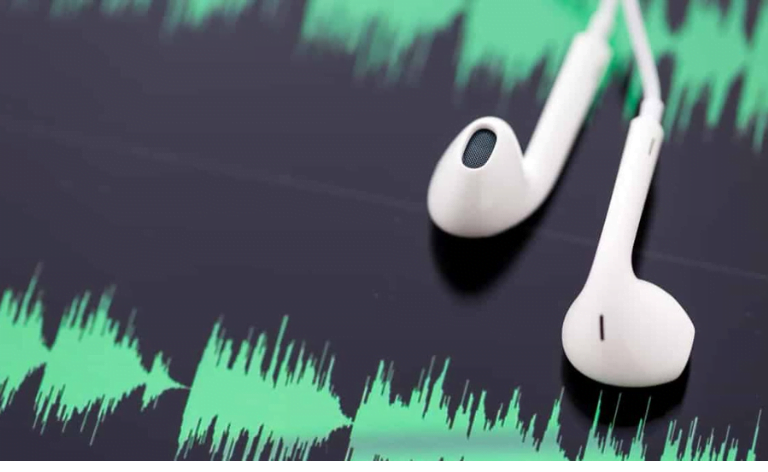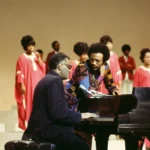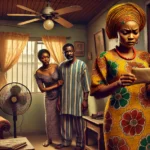So You Want To Know About Nigerian Podcasts

Anyone researching Nigerian podcasts is likely to run into a couple of problems.
First off, podcasts don’t seem that popular. If you searched the words “Nigerian podcasts” on Google, you’d find bits and pieces of information (because Google is awesome) but nothing to give you a coherent overview. This makes sense; the Nigerian podcast scene is still relatively new, after all. Think of it as a toddler. The second and perhaps more pervasive problem is the gross lack of data about the podcast space. There’s a lot we don’t know about who’s speaking and even more about who’s listening. To any long-term Nigerian, this is no surprise. The absence of data is the rule, not the exception. All it means is that we have to put together our jigsaw puzzles with all the odd pieces we can find.
All hope is not lost though, thanks to the efforts of the delightfully helpful people over at naijapodhub.com. They have a directory of Nigerian podcasts and maintain a weekly chart of the top ten. Ten of the very popular ones are discussed here. I listened to them to give myself an idea of what works in the Nigerian Podcast space.
Here’s what I found out.
Format
The formats of the shows are very similar. Most of the popular podcasts are co-hosted. Two (or more) people sit down and have a conversation while you, the audience, get to listen in. Close friends usually host these podcasts, so they know how to bounce ideas off each other and feed off the other’s energy. You can expect laughter, banter, and a little mockery here and there. To add a bit of spice, sometimes they add interviews to the mix, and the hosts get to ask questions of the interviewee. These kinds of episodes are usually quite promising cause it’s an opportunity for the podcast’s hosts and you to enter a domain that they (maybe) normally wouldn’t like technology, health, or finance.
Content
Pop culture is the game’s name, and most popular podcast hosts play it. If you glanced through the descriptions of the podcasts that I’m talking about, the words “raw”, “uncensored”, and “unfiltered” are bound to pop up once or twice. (And in all fairness, they do keep to their word.) It’s going to feel like you’re on the Timeline, but it’s a lot more personal now. The topics revolve around relationships, the millennial struggle, culture and its consequences, and sex. The similarity of the topics doesn’t mean you’ll only hear similar takes though. There’s generally enough authenticity for you to find the voices you want to hear and then toss the others in the bin.
Duration
According to pacific-content.com, the average podcast lasts 43 minutes and 24 seconds. The popular Nigerian Podcasts tend to blow past that time limit and settle around 60 minutes or a little bit more. This shows that if you have something that people want to hear about, they’ll listen for as long as you go on.
Platform
The platform of choice is Anchor. It seems like they’ve cornered the market for podcast creation, and understandably so. Podcasting, like anything else involving sound, can be expensive to execute. You might need a computer, microphones, audio mixing software, headphones, and a number of other things to create good sound. Anchor provides an easier path to circumvent a lot of that and even lets people monetize their content.
Opportunities
For the most part, Nigerian podcasts focus on commentary, and that’s understandable. It’s human nature to want our voices heard, so we tweet, snap, and post. Podcasts are just one more way of making that stamp on the world. Unfortunately, we’re not yet equally heavy on the informative. This is both a problem and an opportunity. There’s so much space to become a pivotal voice on a whole number of topics; in history, politics, business, culture, science, tech, and, oddly enough, even in relationships.
I’m saying this: you can find gist about dating and personal dating experiences, but not much regarding guidance about how to date. You’ll find loads of content about “being Nigerian”, not so much about Nigeria (or Nigerians). Content-wise, the Nigerian podcast scene is starved for people who can inform about anything at all. Add to that a little consistency, posting faithfully at whatever interval works for you, and while you may not reign over the top 10 charts, you will certainly carve yourself a space in people’s minds.
So, there you have it, Nigerian podcasts summarized. I’d love to know your thoughts about general podcasts and Nigerian podcasts. I also want to know whether you agree with me or the reasons why you disagree. You can reach me on Twitter @dami_oj.
Cheers.








